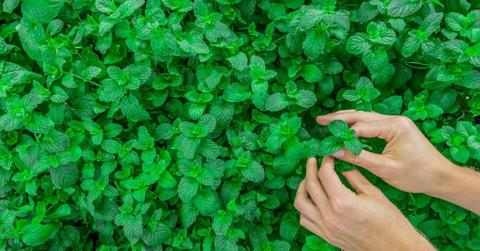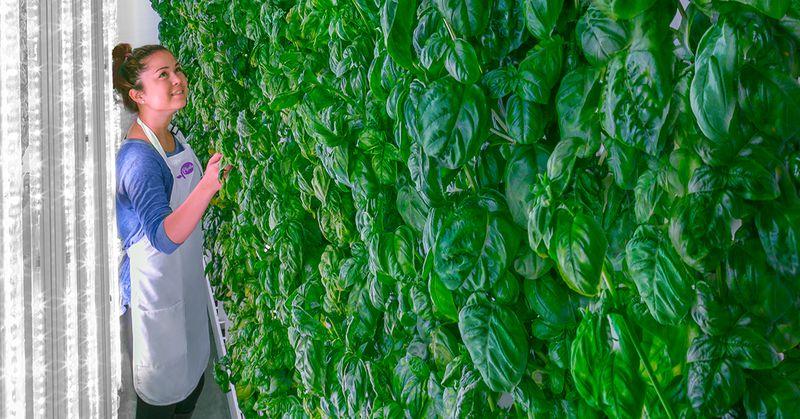This Startup Wants To Build Massive Indoor Farms Near Every Major City
Plenty is an indoor farming company hoping to solve the world’s fresh produce shortage by building a massive indoor vertical farm next to every major city worldwide.
Updated May 20 2019, 4:23 p.m. ET

Vertical farming has gained a lot of traction over the past few years and is being heralded as the green solution to the growing global food crisis. Consisting of crops stacking in vertical layers, this style of farming can yield more crops per square acre than traditional farming or greenhouses, and also uses less water, grows plants faster, and can be used year-round.
Vertical farming has another virtue going for it: Because the facilities can be built almost anywhere, vertical farms can be near cities, helping cut the emissions produced by shipping food from rural to urban areas. And that's exactly what the Silicon Valley startup Plenty has in mind.
Plenty is an indoor farming company hoping to solve the world’s fresh produce shortage by building a massive indoor vertical farm next to every major city worldwide. The farms are built with Plenty's patented technologies using LED lighting, micro-sensor technology and big data processing to deliver high yields of local, organic and GMO- and pesticide-free produce using less space and resources than traditional farming.
While Plenty makes it sound easy, what they're trying to do has proven to be fairly difficult, leaving other startups with similar missions destitute. Vertical farming has been successful on a small scale–even in Antarctica—but no one has quite cracked the case of how to do it on a large scale. Until Plenty.
Flush with Silicon Valley cash, big-name board members and a new way of growing, Plenty is poised to go where no vertical farming company has gone before.
Plenty's plants grow on 20-foot vertical towers rather than stacks of horizontal shelves most other vertical farms use. The towers are mostly made of recycled plastic bottles and there is no soil involved. Water and nutrients are fed in from the top of the tower and dispersed by gravity to the leafy greens and herbs that grow horizontally off the tower. All water, including from condensation, is collected and recycled, and the plants receive all their light from LED lamps.
The farms are also littered with thousands of infrared cameras and sensors that take measurements of temperature, moisture and plant growth, and the data is used to fine-tune the system. On top of that, Plenty farms are controlled environments, so no bugs get in, alleviating the need for pesticides.
With this system, Plenty farms can get as much as 350 times the produce out of an acre of land compared to conventional farming, using 1 percent as much water.
“It is the most efficient [form of agriculture] in terms of the amount of productive capacity per dollar spent,” CEO Matt Barnard told AgFunder. “Period.”
Plenty's prototype was built in San Francisco, but now they're taking their first step towards scaling worldwide by opening a new farm outside of Seattle, Washington. Located in the town of Kent, the farm will be 100,000 square feet and is expected to produce 4.5 million pounds of greens annually.
“Seattle’s emphasis on delicious, healthy food and energy and water efficiency makes the area a natural fit for our next Plenty farm,” Barnard said in a press release. “Seattle will be home to our first full scale farm and help set the standard by which our global farm network makes locally-grown, backyard-quality produce accessible to everyone. We’re excited about what’s next and look forward to building the Seattle team.”
The company’s goal is to build an indoor farm of this magnitude outside of every city with more than 1 million residents, around 500 total. The company says it can build a farm in 30 days and pay investors back in three to five years. And with scale, Plenty believes it can get its costs down to rates on par with traditional produce, though Plenty's produce will be premium quality.
